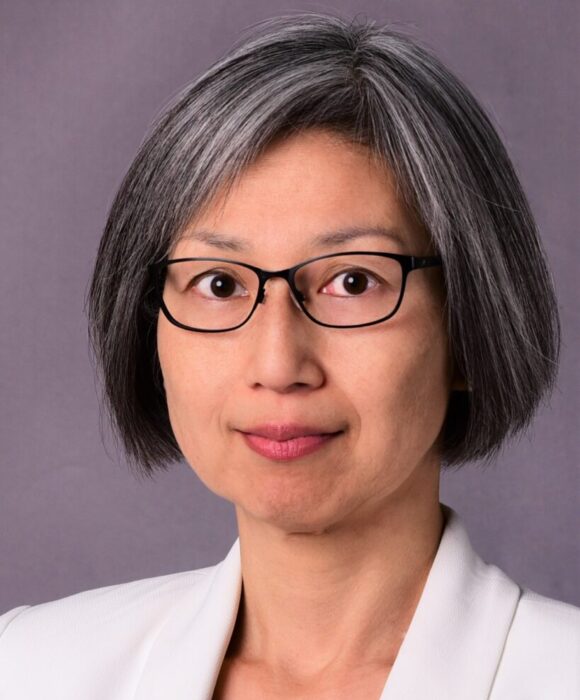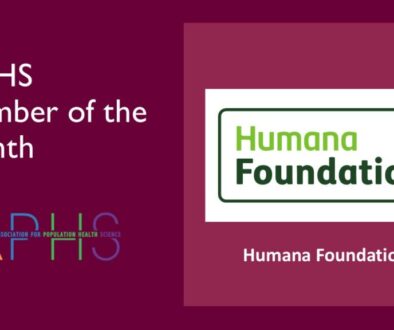Institutional Member of the Month: NYU Grossman School of Medicine
Kaori FujishiroTell us about your institution. What is the mission of the institution?
NYU Grossman School of Medicine’s Department of Population Health is one of the first departments of population health to be launched at an academic medical center. We are a large and diverse group of faculty and staff working on pressing challenges in New York City, nationally, and around the world. Our twin goals are to improve health for all while simultaneously reducing health inequities. In our research, we develop and test real-world solutions in partnership with healthcare systems, communities, policymakers, and other groups to advance the field of population health. We educate future leaders in population health.
Why did you decide to make the connection between your program and IAPHS?
The purpose of IAPHS–to foster scientific innovation and discovery to improve the health of populations and reduce health disparities — aligns perfectly with the goals of our Department. Importantly, we often feel our best ideas arise at the interface of different disciplines and from collaborations with diverse partners. IAPHS is a professional organization that embraces that discipline-spanning approach, where all of our faculty find a home!
We’d love to hear more about the research your members engage in. What are some themes that run through the research in your program?
Our faculty investigate relationships at the intersection of health and nonmedical factors to improve health on a broad scale and drive changes that make it easier for people of diverse backgrounds to be healthy in their everyday lives. We rigorously measure and analyze health data from a variety of sources, such as national surveys, electronic health records, and medical claims. We also mine non-health data, such as administrative datasets, restaurant and grocery store lists, satellite imagery and air quality sensors. We develop and analyze important health and health determinant measures from these data sources to understand and intervene upon modifiable drivers of health and inequity.
Are there any recent research projects/grants/publications that you’d like to highlight?
There are so many projects I’d love to highlight!
We are studying the impacts of various municipal policies on health (e.g. congestion pricing, smoke-free housing in public housing authorities), as well as the impacts of food policies (e.g. sugary beverage taxes, warning labels).
We have a large number of studies examining the impact of state and local laws and policies to combat drug overdoses, as well as testing strategies for treating opioid addiction in community and primary care settings.
We are the clinical coordinating center for NIH’s RECOVER long COVID research.
We perform rapid randomized controlled trials to continuously improve the delivery of healthcare.
We lead many intervention studies on community health worker (CHW) models and support a national CHW Research and Resource Center.
We are leaders in engaging communities–globally and locally– in collaborative research.
We support public health agencies with simulation modeling to guide resource allocation and decision-making.
We provide local municipal partners across the country with health and health determinant data carefully parsed to their geographical boundaries.
What makes your institution interested in interdisciplinary work?
We believe that interdisciplinary work achieves transformational insights and accelerates concrete impacts.
If you do interdisciplinary work, what are the challenges? How would you like to see IAPHS support your institution’s interdisciplinary work?
A few core challenges include: (1) finding impactful ways to influence upstream and structural determinants of health, as well as larger healthcare system forces; (2) reducing time lags in which evidence influences policy
 Would you like to say something about who is answering the questions? How would the interested IAPHS members be able to contact you?
Would you like to say something about who is answering the questions? How would the interested IAPHS members be able to contact you?
My name is Lorna Thorpe, and I am Chair of the Department of Population Health. I’m an IAPHS member and fan. I am a trained epidemiologist who has worked in both government and academia,as well as domestically and abroad.
Will you be at the conference this year? If the readers want to reach you, what’s the best way to contact you?
Yes – I’ll be there! Reach me at : lorna.thorpe@nyulangone.org




All comments will be reviewed and posted if substantive and of general interest to IAPHS readers.